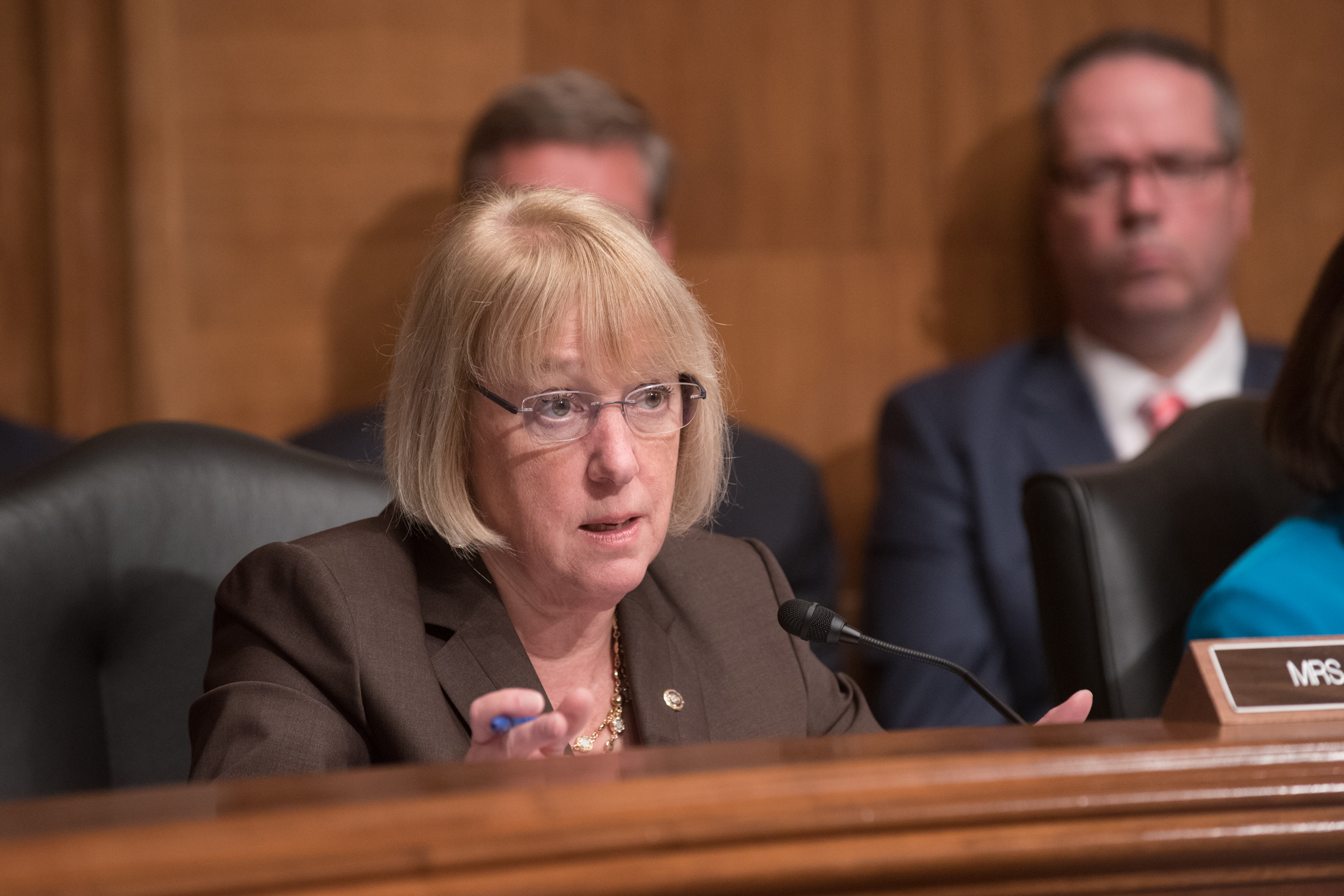***WATCH SENATOR MURRAY’S FULL QUESTIONING HERE***
(Washington, D.C.) – Today, during a Senate Budget Committee hearing, U.S. Senator Patty Murray (D-WA), a senior member of the Senate Budget Committee, joined her colleagues in highlighting the economic costs of wildfires which continue to devastate local communities across the United States. During the hearing, Senator Murray underscored the need for federal investments to strengthen wildfire mitigation and suppression efforts, and pushed for bold action to address the climate crisis with the urgency it demands.
“Climate change means devastating wildfires are quickly becoming the new normal—and we know that comes with a real cost. More wildfires means more adverse effects for people’s health, more loss of property, and more rehabilitation costs for communities,” said Senator Murray. “As catastrophic fires grow in size and frequency, our wildfire suppression funding has to keep pace—and this can’t be at the expense of mitigation and prevention efforts.”
At the hearing, Senator Murray emphasized the harmful effects of climate change in Washington state, notably the disastrous wildfires from 2020 which nearly wiped the towns of Malden and Pine City off the map. Senator Murray reiterated the need for a whole-of-government approach to help local communities mitigate such risks, and support their rebuild in the years to follow.
Murray also called attention to the 2019 bipartisan “fire fix” to end the practice of federal officials diverting money from forest management activities to fight wildfires—Murray made clear that just a few short years later it’s become abundantly clear that the authorized funding levels for the Wildfire Suppression Operations Reserve Fund no longer meet the current reality of ever worsening fire seasons. Murray called on her colleagues to join her in updating and extending the Reserve Fund as soon as possible to meet current suppression needs.
“Tackling this head-on is going to take an integrated, whole-of-government approach—and we have to continue to meet this moment and account for the severity of fire seasons we’re already facing,” said Senator Murray in closing. “That means taking a hard look at how we can save ourselves a lot of heartache and money in the long run by making smart investments in cutting emissions and federal wildfire prevention and response efforts now. So I hope that can be a bipartisan undertaking as we move forward.”
Senator Murray has made clear that Congress must take bold action on climate, and helped to pass the Inflation Reduction Act last year, which delivers the largest investment in combating the climate crisis in American history. The Inflation Reduction Act will invest $369 billion over the next decade into clean energy, clean air travel, energy storage, and more—the largest climate investment in United States history.
Senator Murray also played a key role in securing funds for wildfire prevention and mitigation, fire resilient forests, and more. In the spending package passed last year, Senator Murray was able to include funding for priorities like:
- Wildland Firefighting: Total annual funding for wildfire suppression is $4.395 billion, of which $1.395 billion is provided in base suppression operations, $2.55 billion is provided in the Wildfire Suppression Operations Reserve Fund, and $450 million is provided in the disaster supplemental. The FY23 spending package provides $550 million (14 percent) more than fiscal year 2022. Since the enactment of the Consolidated Appropriations Act, 2018 (Public Law 115-141), which authorized the Reserve Fund, the average annual cost of suppression has exceeded the assumptions that informed current funding levels the Reserve Fund. Fiscal year 2021 was the most expensive year on record, with costs exceeding $4 billion; fiscal year 2022 costs were over $3.7 billion. As catastrophic fires grow in size and frequency, wildfire suppression funding must keep pace. Further, the bill builds on commitments to improve compensation for federal firefighters and convert seasonal positions to full-time—an important priority for Senator Murray.
- Wildfire Smoke Mitigation: The bill provides $7 million, an increase of $3 million from the fiscal year 2022 level, for the EPA wildfire grant program established last year to support local efforts to prepare for and protect against wildfire smoke hazards, including by developing smoke mitigation and filtration plans for schools and community buildings. It also provides $3 million to support EPA wildfire smoke monitoring as well as smoke forecasting and communication tools like AirNow Fire and Smoke Map.
- Hazardous Fuels: The Forest Service and the Department of the Interior are provided a total of $454 million for hazardous fuels reduction, $40 million more than last year.
- Forest Restoration: The bill builds on investments in the Forest Service, including $32 million for the Collaborative Forest Landscape Restoration (CFLR) program, a $4 million increase.
In 2021, Senator Murray penned an op-ed to the Seattle Times, stating, “Congress must send President Biden a landmark investment in climate action that will protect our planet for current and future generations — nothing less will cut it.” Senator Murray has consistently rallied her colleagues in the Senate to pass bold climate action legislation and continues to press for climate action in every way possible.
###


